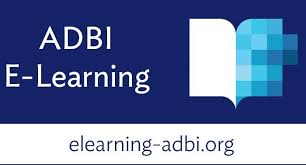A research proposal is an important document used by scholars and students to secure approval and funding for academic projects, dissertations, or theses. It showcases the formal blueprint of a research project. A research proposal has a definitive structure that highlights the significance of the research, including the research questions, methods of data collection, review of related studies, and relevance of the research. The secret to writing a good research proposal is to first understand the core components and strategic approach to it. Once you can hack that, writing your research will be a smooth run in the park.
In this article, we explain what a research proposal is and how to hack the sacred writing code. We will break it down into easy-to-understand components, detail its primary purposes, and provide a clear step-by-step guide on how to write a good research proposal. Lastly, we will offer you the key tips to master the art of writing a compelling document.
Key Takeaways:
-
A research proposal is a structured document, typically 4-7 pages long, that outlines a planned research project for academic or scientific purposes.
-
Its core purpose is to persuade reviewers of a project’s importance, your capability to execute it, and its potential contribution to the academic field.
-
Essential components of a research proposal include a title, abstract, introduction, literature review, methodology, and a timeline or budget.
-
Clarity, specificity, and a well-justified research gap are critical to a proposal’s success.
What is a Research Proposal?
A research proposal is a detailed, formal document that presents a proposed research topic comprising a clear explanation of how the researcher intends to study it. Through the proposal, an in-depth analysis of the study is provided, outlining the specific methods used for data collection, the steps of the research process, and presenting a realistic timeline for the project. By introducing your topic and its objectives, the proposal demonstrates how your work will contribute new knowledge or insights to your academic or professional field.
What is the Purpose of a Research Proposal?
The purpose of research proposals can never be overemphasized; they aim to:
-
Secure Approval: Through a proposal, you convince supervisors or the committee that your research is worthy and satisfies degree requirements.
-
Obtain Funding: You can also persuade agencies or organizations to provide financial sponsorship for your project.
-
Demonstrate Competence: Showcasing your deep knowledge of the subject area and proving your preparedness to conduct rigorous, ethical research.
-
Clarify Research Plan: A research proposal also helps you refine your focus, objectives, and methodologies by requiring you to articulate them clearly, which guides you through the process.
-
Anticipate Challenges: With the aid of a proposal, you foresee potential obstacles you could encounter in the research process, and equally, enable you to plan for them proactively.
You may also like: How to Write a Winning CV for Your Applications
How to Write a Research Proposal
To ensure you structure an effective and persuasive research proposal, follow these steps diligently:
1. Write a Clear Title Page
This page comes at the beginning of your research proposal. It is always recommended to capture the interest of your readers on this page by arranging some key details of your research, such as its title, your name, the current date, your supervisor’s name, your department, and the institution hosting the project. Ensure you organize these details with a clear format, like bold fonts and a legible text size. Always inquire from your colleagues or supervisor to verify the recommended format for this page.
2. Develop a Comprehensive Abstract
The abstract is a succinct summary of your entire research. The abstract is typically 150-300 words, which sums up the study holistically. The key elements of a research abstract include the research aims, the methodology, hypotheses, and the potential significance of the findings. Therefore, in writing the abstract, be clear and succinct to highlight why you chose the research, how you intend to gather data for the research, discoveries you hope to make, and also, how the research will contribute to the academic field or a specific group of individuals.
3. Write a Compelling Introduction
The introduction is like a doorway to the main discussion. It is often recommended to begin your introduction by defining key concepts peculiar to the research, which establishes a contextual background to the study area. Here, you can highlight the general knowledge that might have influenced your research, then narrow down to the specific gap in the knowledge that your project addresses. To enhance clarity, define your keywords, state your research question(s) or hypothesis, and briefly hint at how your study will fill the identified gap in the available knowledge.
4. Add background information
Depending on what you prefer, developing background information is always helpful to demonstrate the reason behind your choice of research. On this page, you show what drives your passion, highlight the extent of existing contributions made in this focus area already, and outline those who can most benefit from the study result.
You can summarize previous developments in this study area by acknowledging the contributions and showcasing how your research might alter previous perceptions by adding the missing gap in the existing knowledge.
You may also like: Write A Job Application Letter Like a Pro
5. Develop Research Question(s)
Research questions refer to the concise statements about the existing issues or problems in the focus area that your research aims to resolve. When your research questions are well-formulated, it contributes to the tone of your study by ensuring that your research is focused, relevant, and feasible to carry out. They can also guide the writing process by keeping you on a defined direction of flow.
6. Compose a Problem Statement
A problem statement comprises a description of how your research intends to solve or address the issues raised in the research questions. It may present challenges that disrupt a solution and how your research aims to solve these problems. While composing your problem statements, be sure they reflect why your study results may apply to a specific field or industry. You can also use this section to show how your topic relates to specific problems, which may further solidify your project purpose.
7. Conduct a Thorough Literature Review
A literature review is a document that describes both the primary and secondary sources of your research and how they relate to your hypotheses. This is the section where you list other scholars who have equally contributed to this discussion. Literature reviews show how existing knowledge forms the foundation of your research. Equally, it helps the readers to understand the key arguments supporting your study.
Depending on the requirements of your program, you might decide to challenge existing studies from other experts by comparing and contrasting their results. If your research reveals a missing link in their theories, be sure to point out how your inquiries may provide a more detailed evaluation of the issue.
8. Detail Your Research Methodology
Research methodologies describe the practical steps taken in your data collection and evaluation processes. This section provides a holistic overview of how you plan to gather relevant information and the methods to interpret it.
As the operational core of your proposal. Be precise enough to show that your proposed methodologies can address your research questions adequately. Specify your approach and justify why it’s appropriate. Describe your methods, your sample, and sampling strategy. Explain the specific techniques you will use to analyze the collected data. Also, address how you will ensure ethical considerations.
9. Add Conclusion
Summarize all previous information and point out the relevance of your proposal to reiterate how it would contribute to existing knowledge in your subject area. If you decide, you can restate your research problems and further clarify the result you hope the project will achieve.
Consider the guidelines of your supervisor and review them thoroughly, as they may have specific requirements for the conclusion.
10. Provide a Realistic Timeline and Budget
If your research requires external funding to carry out, consider attaching financial details to your proposal. Here, you can highlight the expenses required for this research and why it is essential to achieving your research goals. Itemize anticipated costs to cover expenses like travel, personnel, equipment, materials, etc. With clear justifications for each item.
11. Compile a Bibliography
Research bibliography refers to the list of all the referenced video clips and texts cited in your documents. Some companies or organizations might require comprehensive details of all the cited materials. Typically, in a consistent, required academic style (e.g., APA, MLA, Chicago).
You may also like: Write Recommendation Letters Like a Pro!
Essential Tips for Writing a Research Proposal
-
Be Specific and Focused: A vague proposal is a weak proposal. Clearly define your research questions, objectives, and scope.
-
Write Clearly and Concisely: Use formal, precise language but avoid unnecessary jargon. Ensure your argument is logical and easy to follow.
-
Proofread Meticulously: Spelling, grammatical, or formatting errors undermine your credibility. Review your document carefully or use professional proofreading services.
-
Follow Guidelines Precisely: Adhere strictly to all formatting, length, and structural requirements provided by your institution or funder.
-
Anticipate Reviewer Questions: Address potential limitations or alternative interpretations of your approach proactively to strengthen your case.
By treating your research proposal as a persuasive argument for your project’s value and feasibility—rather than just an administrative requirement—you significantly increase your chances of gaining the approval and support needed to begin your important work.






